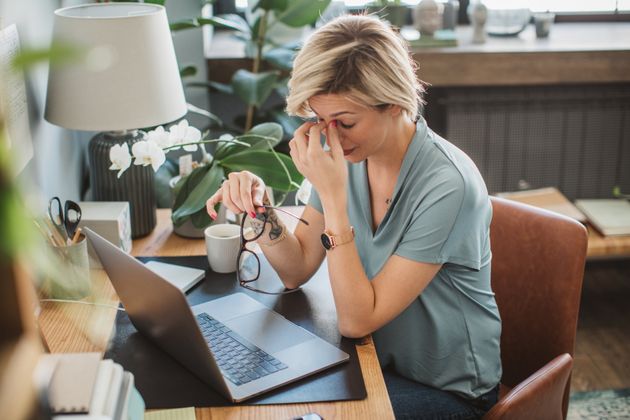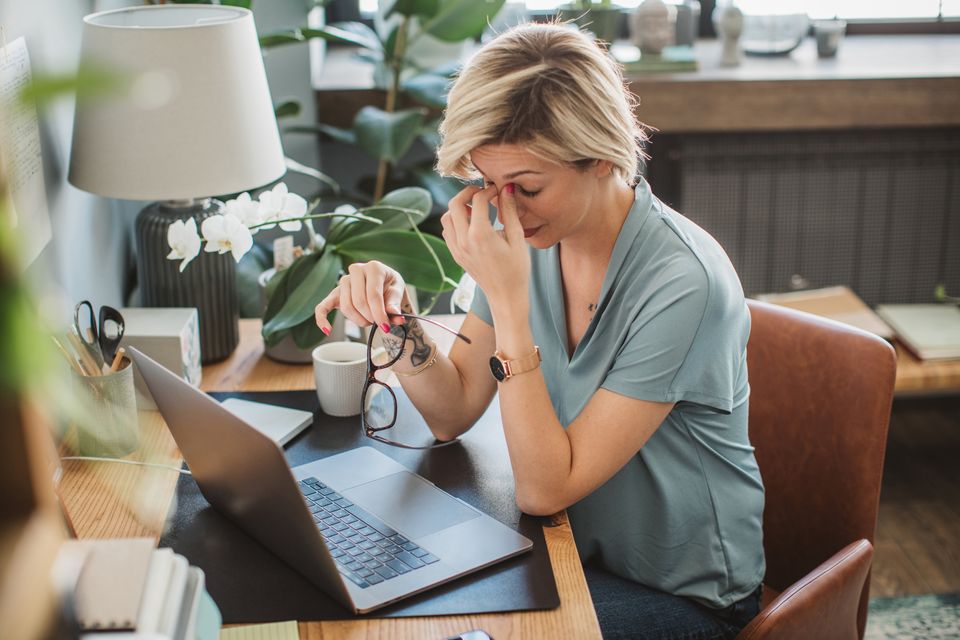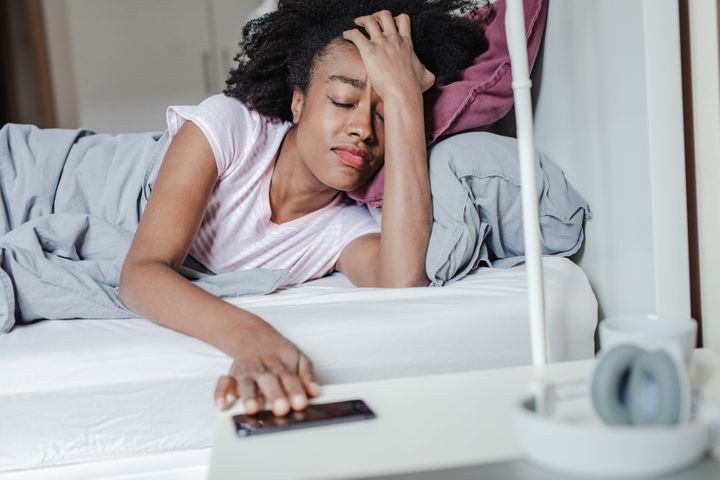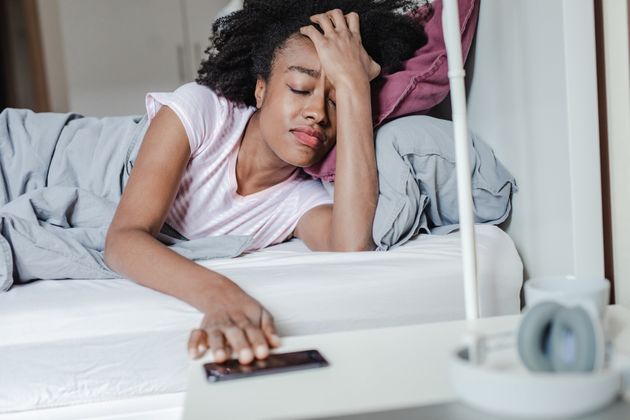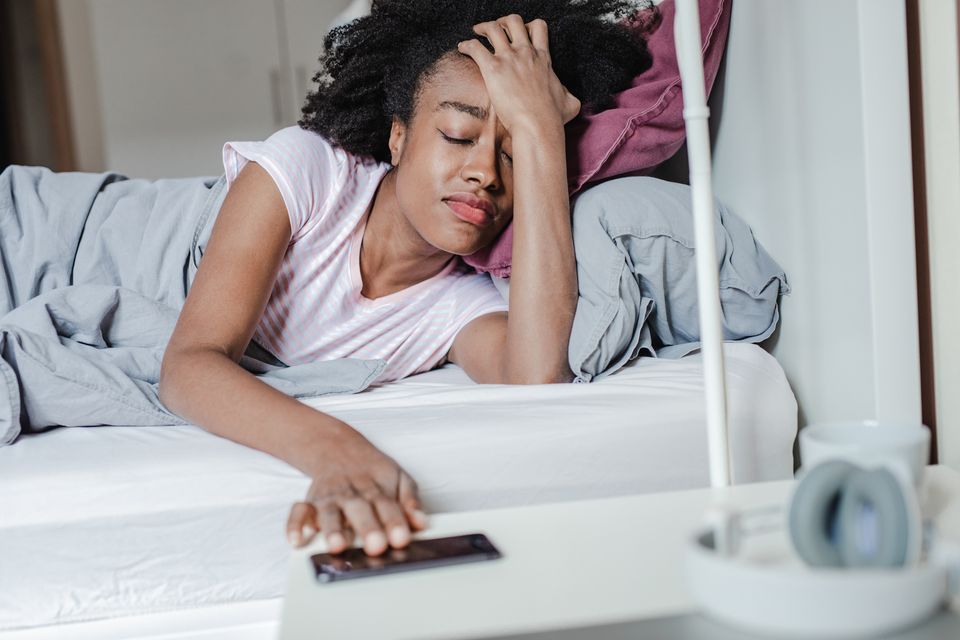If you’ve ever pulled an all-nighter or spent the night tossing and turning, you know how awful it can feel to be sleep-deprived.
Your body might ache, you may struggle to pay attention and your mood will most likely take a hit. This is because sleep is linked to nearly every important bodily function — it affects our immune system and our appetite, our stress hormones and our metabolism, our blood pressure and our cardiovascular system. Even a single night of poor sleep can trigger a wide range of health effects (which is why you may feel so crummy after that late night out).
Advertisement
Most of us need between seven and eight hours of sleep a night to feel alert and healthy the next day. But for whatever reason, that’s not always possible. In fact, a study recently published in JAMA Network Open found that nearly half of Americans are sleep-deprived on a regular basis.
The best way to combat sleep deprivation is ― well, to sleep. There’s really no quick fix, but there are a handful of tips and tricks that can make the day more bearable. We asked a few sleep specialists to share how they cope when they’re sleep-deprived. Here’s what they said.
Don’t stress about it
This is easier said than done, but it’s helpful not to get fixated on the fact that you’re sleep-deprived.
When Fiona Barwick, the director of the sleep and circadian health program at Stanford Health Care, is low on sleep, she reminds herself not to worry about it because she knows her body will do what it takes to get back on track.
Advertisement
Our sleep drive is a self-correcting system that naturally tries to keep the sleep-wake cycle in balance. “If we don’t sleep well one night, we’ll sleep better the next night. If we worry about it, however, our sleep will be worse,” Barwick said.
Expose yourself to light
Barwick also makes a point to expose herself to some bright light first thing in the morning. Our sleep-wake cycle is heavily dependent on light — daylight sends a signal to our brain that it’s time to get up and be active, while darkness sends the cue that it’s almost time to go to bed.
Exposing yourself to light when you first wake up “suppresses melatonin, which increases alertness and boosts mood,” Barwick said. It’ll also help keep your circadian rhythm in check, which should help you sleep more soundly at night.
Have some caffeine (but not too much)
It might seem obvious, but yes: Coffee helps. This is because caffeine blocks adenosine, a chemical in our body that increases the need for sleep. As a result, caffeine makes us feel less sleepy and improves learning and decision-making if you’re sleep-deprived, according to Dr. Andrey Zinchuk, a sleep medicine doctor with Yale Medicine.
But while it may be tempting to keep refilling your mug, it’s important to be mindful of how much caffeine you consume.
Advertisement
“I don’t have too much caffeine, as I want to avoid the crash that occurs when its alerting effects eventually subside,” Barwick said.
Dr. Wissam Chatila, a pulmonologist at Temple Lung Center and professor of thoracic medicine and surgery at the Lewis Katz School of Medicine at Temple University, advises against having that late-afternoon cup of coffee.
“If taken at the wrong time — e.g. late in evening — then they will interfere with sleep later on,” he said.
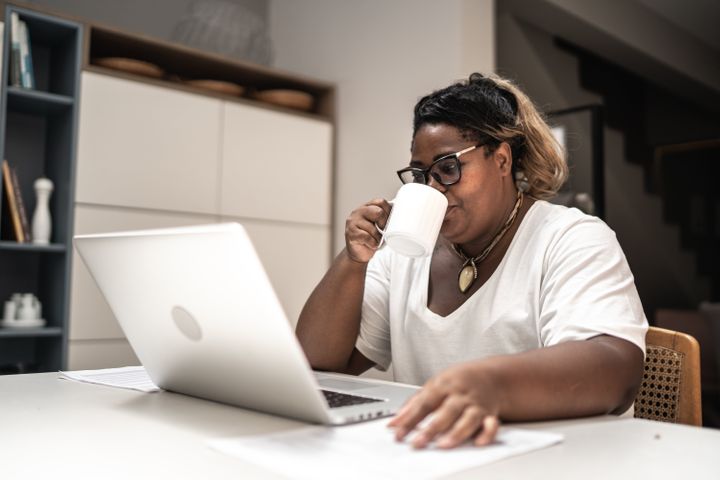
FG Trade via Getty Images
Take a catnap
If you’re able to squeeze in a 30- to 60-minute catnap, go for it. A short nap can improve alertness, sleepiness, memory and exercise capacity.
Advertisement
On the flip side, a lengthier midday snooze can actually impair cognitive function, Chatila said, and potentially make it even harder to complete tasks. Make sure to set an alarm so you don’t overdo it.
“I keep the nap relatively short so that I don’t use up too much sleep drive, as I want to save most of it for the coming night,” Barwick said.
If you’re not a napper, even getting some deep rest can be beneficial, Barwick said. Ten to 30 minutes of yoga nidra, a meditative yoga practice that involves deep relaxation, can help you feel refreshed and more attentive.
Go for a walk
When Barwick can’t nap, she tries to go for a walk outside. Even a 10-minute walk can significantly reduce stress, boost your mood and increase alertness, research shows.
Plus, it can build up your sleep drive, which should help you doze off at night.
“That helps to further ensure I will get better sleep the coming night,” Barwick said.
Know that your body is resilient
Lastly, don’t beat yourself up. Our bodies are incredibly resilient, which is why we’re still able to function even when we’re sleep-deprived. (Think about all you’ve been able to accomplish on those days when you didn’t get enough sleep.)
Advertisement
Don’t assume the day will be a wash just because you didn’t get the sleep you needed, Barwick said. Go easy on yourself, and listen to your body.
“I don’t cut back on what I planned to do, but I also don’t beat myself up if I get less done than I wanted,” she said.

